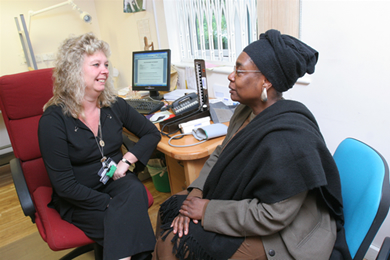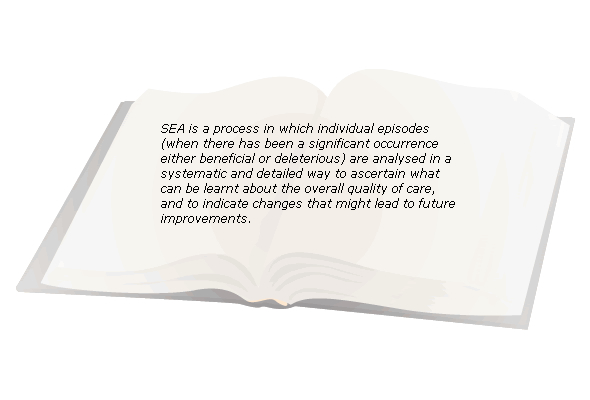An Introduction to Significant Event Audit course for GPs



This session will assist general practitioners and their staff in understanding the origins and importance of significant event audit (SEA).
For practical application see session - How to Perform Significant Event Audit Successfully in Your Practice.
This session was reviewed by Khyati Bakhai and last updated in June 2018.
Learning Objectives
By the end of this session you will be able to:
- List key historical events relevant to the development of SEA
- Explain why SEA is useful to practising healthcare professionals
- Define SEA and list a range of events that should be examined using the SEA process
- Specify why SEA is relevant to your work and explain why and how SEA will help improve patient care and safety
- Illustrate similarities and differences between SEA and clinical audit
Significant Event Audit (SEA) is an increasingly popular risk management tool utilised by general practitioners (GPs) since the mid-1990s. SEA allows practices to reflect on the delivery of care and to make changes that enhance patient safety. Evidence shows that SEA improves teamwork and can also enhance communication and morale.
Tracy is a co-director of the Clinical Audit Support Centre Limited, an independent team which provides advice and expertise in all fields of clinical governance. Tracy has worked with many GP practices to help them establish effective significant event audit processes and the Clinical Audit Support Centre have developed an accredited qualification in significant event audit. The Clinical Audit Support Centre have also worked closely with the National Patient Safety Agency, undertaking project work examining the quality and content of SEA reports produced by practice teams. For more information.


Stephen is a co-director of the Clinical Audit Support Centre Limited, an independent team which provides advice and expertise in all fields of clinical governance. Stephen has worked with many GP practices to help them establish effective significant event audit processes and the Clinical Audit Support Centre have developed an accredited qualification in significant event audit. The Clinical Audit Support Centre have also worked closely with the National Patient Safety Agency, undertaking project work examining the quality and content of SEA reports produced by practice teams.
- Mental Health Promotion in the Perinatal Period co...
- Posted By eIntegrity Healthcare e-Learning
- Posted Date: 2024-11-02
- Location:Online
- This session aims to raise awareness regarding the factors that predispose women to mental ill healt...
- Epilepsy in People with Learning Disabilities cour...
- Posted By eIntegrity Healthcare e-Learning
- Posted Date: 2024-11-01
- Location:Online
- This session describes how to provide a high standard of care to patients with learning disabilities...
- Screening Programmes Part 2: Antenatal and Newborn...
- Posted By eIntegrity Healthcare e-Learning
- Posted Date: 2024-11-01
- Location:Online
- This session describes and discusses the NHS Fetal Anomaly Screening Programme, the NHS Newborn and ...
- Screening Programmes Part 1: Pregnancy and Newborn...
- Posted By eIntegrity Healthcare e-Learning
- Posted Date: 2024-11-01
- Location:Online
- This session will describe and discuss the following three NHS antenatal and newborn screening progr...
- Ensuring Quality: Role of the UK NSC, Policy Devel...
- Posted By eIntegrity Healthcare e-Learning
- Posted Date: 2024-11-01
- Location:Online
- This sessions offers you an understanding of how screening programmes are chosen and how their quali...





